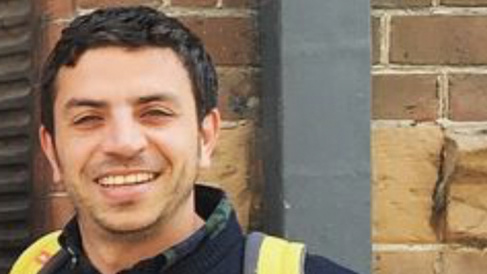Alejandro Lerch

Alejandro Lerch
Research
Project: “The political economy of drug trafficking in Mexico: Understanding the overlap of crime, repression and state making”
Throughout the second half of the 20th century, the leadership of Mexico’s security and policing apparatuses has often turned out to be the very same running the national criminal syndicates. Confronted time and again with this entrenched historical pattern, Mexicans often wonder why has it been so politically permissible for the state security apparatus to ‘tap’ and enable organized crime. The extent to which political elites have endorsed and encouraged these behaviours throughout the country’s history not only underlines poorly understood “grey” and “parapolitical” areas in the country’s state-making process, but points at broader questions on the nature of policing in Mexico, what policing actually has been, and what it has aimed at achieving.
Situated at the intersection between historical sociology and comparative politics, my doctoral research studied the overlap of federal policing and organized crime in 20th century Mexico, showing how this overlap shaped and constrained the evolution of Mexican society in historically significant ways. Drawing from copious archival research and unprecedented testimonies, my thesis showed how federal policing has been much less about sustaining the rule of law, tackling illegality and suppressing crime, and much more about tapping into drug markets, contraband, human trafficking and other criminal activities in order to support an enhanced state capacity to break down social protest. The politically-endorsed attachment of federal policing to criminal economies not only supported the coercive side of political centralization in Mexico but “paid” for the repression of peasant and labour movements, the deployment of dirty wars, the suppression of urban and rural insurgencies, the neutralization of leftist actors, the policing of alienated populations and other processes that made capitalism, industrialization and neoliberalism possible in a very material sense. Throughout the 20th century, political and economic elites in Mexico developed a stake in indirectly enabling criminal economies because criminal economies became a crucial economy in the operation of the security bureaucracies and processes keeping them in power.
My research fits into a growing body of literature seeking to understand the relationship between governance and crime, the “grey areas” linking state and criminal actors, and the “parapolitics” of modern state-making. It also builds on a growing body of literature that challenges the naturalization of policing by underlining its role in the historical evolution of capitalism, social alienation and economic inequality. Building on my Ph.D. research, my post-doctoral interests lie in better understanding policing under authoritarian regimes, recasting the so-called ‘war on drugs’ in Mexico in a context of neoliberal transformation, looking at policing institutions and organized crime from historical and comparative perspectives, and better understanding the interaction between the police and economic and political elites. Before joining CLAS at the University of Cambridge, I studied security studies at Sciences Po Paris and political science at the National University of Mexico. I worked as a private consultant in Mexico City specialized in organized crime, as a journalist for a variety of Mexican newspapers, as an intern at the UNODC in Vienna, and as a police inspector in the anti-corruption division at Mexico’s federal police.
Research interests:
- Policing and organized crime
- Crime and neoliberalism
- The ‘grey’ areas and parapolitics
- Illegal markets and paramilitarization
- Drug trafficking as a war economy
- Mafias in comparative perspective
Supervisor: Dr. Graham Denyer Willis
Contact:
al771@cam.ac.uk
